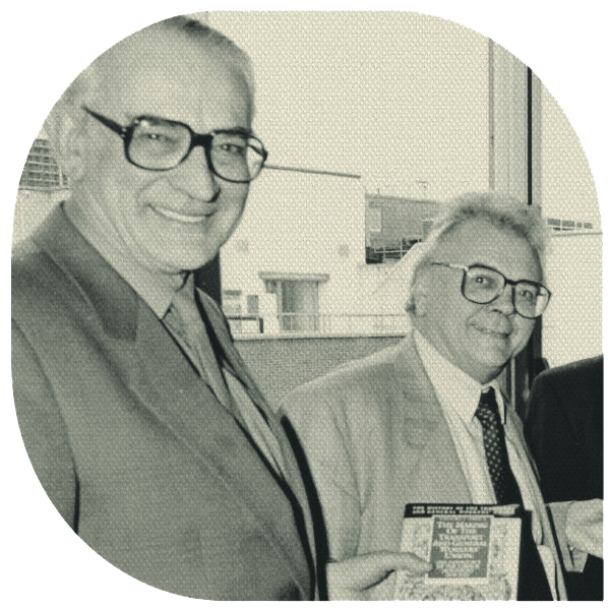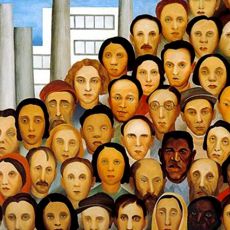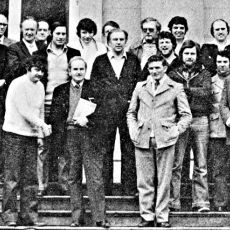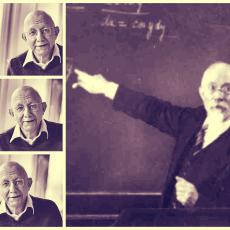Ken Coates & Tony Topham
As two of the founders of the Institute for Workers’ Control (IWC), with Michael Barratt Brown, Ken Coates and Tony Topham were key influences on the development of the labour movement and politics during the period of raised worker militancy in the UK in the 1960s through to its decline in the 1980s. Part of a generation of socialists who distanced themselves from the Communist Party both were signatories of The May Day Manifesto, a defining document of the ‘new left’ in Britain. Both maintained precarious relations with the Labour Party although Coates was also closely allied to Ernest Mandel and his wing of the Trotskyist movement while Topham was drawn towards Tito’s Yugoslavia with early publication (along with Fred Singleton) on its self-management system.
Like many of their contemporaries in the UK new left, such as E.P. Thompson the historian and author of The May Day Manifesto, both Coates and Topham were tutors in Adult Education Departments at Universities: Coates in Nottingham and Topham in Hull. This gave them strong connection with shop stewards in workplaces in key industries where there was growing militancy particularly in the Nottinghamshire mining industry and the Hull docks, with Michael Barratt-Brown with similar connection with the steel industry of Sheffield. Courses drew from and constructed around the experience, knowledge, and needs of the shop stewards. Some classes developed projects examining how their workplaces or industries might be run under workers’ control or with some element of industrial democracy. Discussion of these plans formed the focus, and provided the organisational principal for conferences starting in the mid-1960s but formalising as the IWC in 1968.
The IWC also produced a series of pamphlets outlining plans for workers’ control (with a collection of the plans also edited by Coates) as well as reproducing works by Ernest Mandel and, before they were easily available in English, articles by Antonio Gramsci on the 1920 occupations in Italy. Pamphlets also became a platform for a number of trade union leaders and Labour politicians who became associated with the IWC. Coates and Topham themselves produced an anthology – initially published in four volumes as Industrial Democracy in Britain and later as Workers’ Control in one volume - linking some extracts from IWC publications with work from earlier traditions of workers’ control and industrial democracy in the UK. Their own perspective on workers’ control was spelled out in their book The New Unionism: The Case for Workers’ Control in 1972. By this time the IWC were becoming an important influence on the more radical wings of both the trade unions and the Labour Party.
A key to Coates and Topham’s approach, and a point which caused some controversy, is the differentiation between ‘workers’ control’ (drawing on The Frontier of Control the 1920 analysis of workplace organisation by Carter Goodrich) which develops through the ‘encroachment’ on managerial prerogative within the capitalist labour process, while post-revolutionary arrangements – largely modelled on those of Yugoslavia – are referred to as ‘workers’ self-management’. Thus the building of workplace labour organisation and its engagement with day-to-day struggles builds, in possibly uneven increments, towards the capacity to organise and control the means of production after the political transformation to socialism. In their view, therefore, a whole series of institutional arrangements bringing together unions and management, labour and capital, in the regulation of the employment relationship – from the establishment of collective bargaining through German co-determination to workers’ co-operatives under capitalism – were just stages in the inexorable rise of labour.
By the turn of the 1970s labour in UK, as well as elsewhere, seemed on such a rise with organised workers - with some left-leaning trade union leaders and strong shop-floor organisation – increasingly challenging management prerogative and the exigencies of capital. In 1969 Topham and other members of the IWC advised shop stewards facing closure at GEC-AEI. While the resistance didn’t materialise the possibility set the context for the Upper Clyde Shipbuilders work-in, where IWC principally through Michael Barratt-Brown and insistence on ‘opening the books’ contributed analysis of the ‘social cost’ of closure, and the following wave of more than 250 occupations in the following decade in some cases, as at the Imperial Typewriters sit-in over closure in 1975 where Topham drafted the workers case and acted as advisor. The IWC saw the main promise in the return of a Labour Government in 1974 with a commitment to ‘extend industrial democracy’ particularly with Tony Benn, a high profile supporter of the IWC since the UCS work-in, becoming responsible for Industrial Policy. Ken Coates acted as an informal advisor. Benn, as Secretary of State for Industry, and with advice from Coates but opposition from his own officials as well as some other members of government gave financial support to establish workers’ co-operatives at three enterprises following worker resisting closure with occupation although these remained underfunded and where short lived. While a commission was established to explore industrial democracy its proposal for corporate governance similar to the supervisory boards of German co-determination, (which Coates and Topham critically examined in detail in an IWC pamphlet), was stillborn.
These arguments didn’t go uncontested by other sections of the UK left. Early Coates and Topham challenged the argument of the industrial organiser of the Communist Party that workers’ control was itself only a transitional strategy until industry can be brought into state management. However their arguments also came under attack. Richard Hyman, in a survey of the IWC publications (which was challenged by Coates, Topham and Barratt-Brown, see attached) argued that the IWC constituted a political party, while the group Solidarity (see also attached) criticised the emphasis not just on trade union officers but also shop stewards, as well as restricting ‘workers’ control’ to pre-revolutionary encroachment rather than post-revolutionary institutions.
The main blow to the IWC, however, came with the rise of Thatcherism and neo-liberalism which, in its attacks on organised labour also undermined the expectation of gradual encroachment of workers’ control. Ken Coates, always an active campaigner, continued on the political stage in the European disarmament movement and then as a member of the European Parliament. Expelled from Blair’s New Labour, Coates joined the European United Left/Nordic Green Left group (GUE-NGL) in his latter time in the European Parliament. Tony Topham, much more withdrawn, submerged into the last major collaboration with Coates. Commissioned to produce a history of the Transport and General Workers Union to celebrate its centenary the project snowballed into a magisterial examination of early unionism which, in the over nine hundred page two-part volume that appeared, only brings the account to the very beginning and early mergers of new unions amongst the unskilled at the turn of the twentieth century although with clear echoes of the crisis of the end of the century. Notionally, however, the IWC has outlived both Tony Topham, who died in 2004, and Ken Coates, who died in 2010, continuing to reproduce arguments for workers’ control (link below).
Selected Publications
- Coates, K. & Topham, T. 1970, Workers' Control: a book of readings and witnesses for workers' control, Panther.
- Coates, K. & Topham, T. 1972, The New Unionism: The case for workers' control, Penguin Books, Harmondsworth.
- Coates, K. & Topham, T. 1991, The making of the labour movement: the formation of the Transport & General Workers' Union, 1870-1922, Blackwell, Oxford.
- Coates, K. (ed.) 1968, Can the workers run industry?, Sphere Books in association with The Institute for Workers' Control, London.
- Coates, K. (ed.) 1976, The New Worker Co-operatives, Spokesman Books, Nottingham.
- Coates, K. 1981, Work-ins, Sit-ins and Industrial Democracy, Spokesman, Nottingham.
- Coates, K. 2003, Workers' Control: Another world is possible, Spokesman, Nottingham.
- Singleton, F. B. & Topham, T. 1963, Workers' Control in Yugoslavia, Fabian Society, London.
- Topham, T. 1964, 'Shop Stewards and Workers' Control', New Left Review, no. 25 May/June 1964, pp. 4-16.




